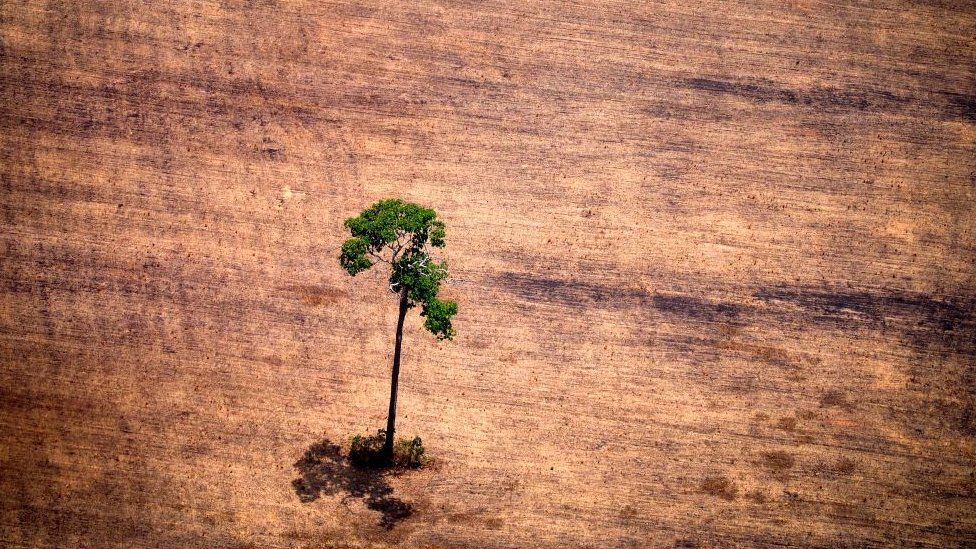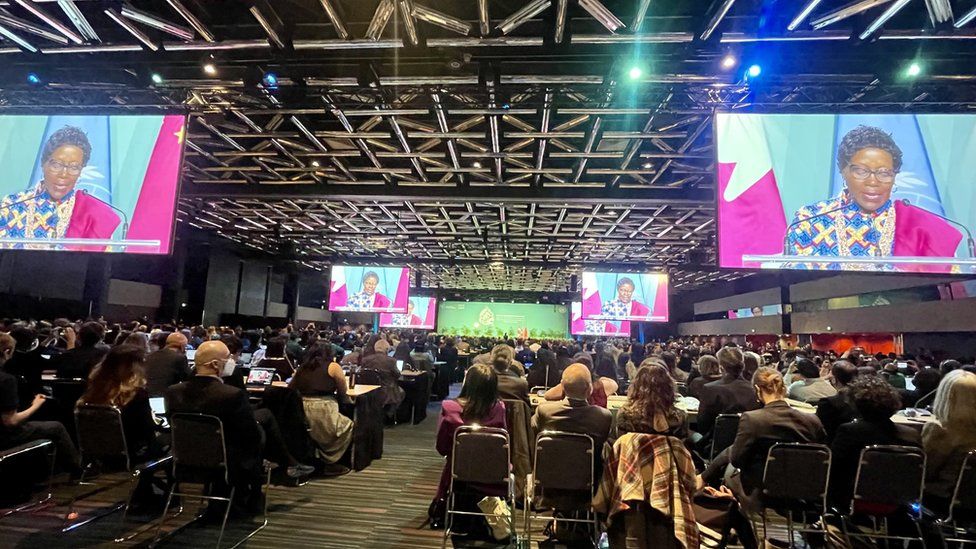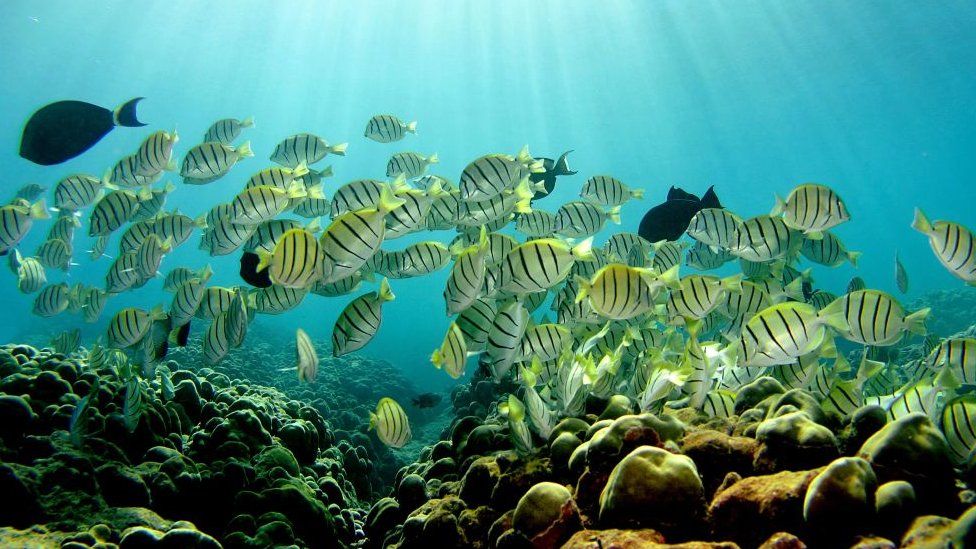There is No Future Unless We Stop Destroying the Natural World.
Reverse nature's decline or there is no future - UN

The United Nations' biodiversity chief says global talks under way in Montreal are the "last chance" to reverse the destruction of the natural world.
"Biodiversity is the foundation of life. Without it, there is no life," Elizabeth Maruma Mrema stated.
But she is worried about the amount of work still needed for the 196 countries to reach an agreement.
The Global Biodiversity Framework, if agreed, represents fundamental change.
It is the nature equivalent of the Paris Agreement, an international treaty to limit global temperature rise and arrest the climate crisis.
"The targets in that [Global Biodiversity Framework] are a roadmap to, by 2030, reverse and halt the loss of biodiversity, which has reached rates unprecedented in the history of humankind" Ms Mrema said.
Elizabeth Maruma Mrema is executive secretary of the UN Convention on Biological Diversity
The list of 20 targets includes quantifiable aims, such as a call for 30% of the Earth's land and sea to be conserved through the establishment of protected areas.
But it also includes trickier political issues, such as protecting the rights and access of indigenous people to their territories.
Indigenous communities are custodians of an estimated 85% of the world's biodiversity - and where they have rights and access, it is significantly better protected from degradation and damage.
'Paralysing goals'
The current draft deal still had "a lot of brackets", Ms Mrema said. "And brackets mean disagreement - areas where the 196 still have to agree, compromise and reach a consensus."
In an article in Nature, ahead of the talks, ecologist Prof Sandra Diaz, from the National University of Córdoba, said the brackets had "proliferated at an alarming rate throughout the text, neutralising and paralysing goals and targets".
And some scientists in Montreal worry the policy fails to reflect the evidence.
Ms Mrema said the scientific evidence revealed the scale of the crisis and the urgent need for the talks to succeed.
"We've already degraded 75% of the Earth's surface and more than 60% of the marine environment," she said.
"Half the coral reefs have already disappeared and 85% of wetlands are degraded."
Action was needed now, Ms Mrema said, "or there would be no future for our children and grandchildren".
'Peace pact'
In his opening remarks, UN Secretary General Antonio Guterres said humanity had laid waste to ecosystems and "treated nature like a toilet".
He called for a peace pact with the natural world and, in a thinly veiled swipe at those with ambitions to colonise Mars, he said: "Forget the dreams of some billionaires, there is no planet B."

Speaking at the opening ceremony, on Tuesday, Canada's Prime Minister, Justin Trudeau said: "If we can't agree, as a world, on something as fundamental as protecting nature, nothing else matters."




Recent comments